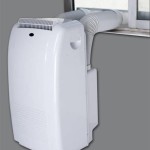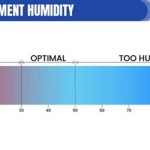What Is Ideal Humidity for Basements?
Maintaining optimal humidity levels in your basement is crucial for ensuring a healthy and comfortable living environment. High humidity can lead to a range of problems, including mold growth, musty odors, and structural damage. Conversely, low humidity can cause dry air, respiratory issues, and skin irritation.
The ideal humidity for a basement should be between 30% and 50%. This range minimizes the risk of moisture-related issues while promoting a comfortable atmosphere. To achieve and maintain these levels, several factors need to be considered, such as ventilation, insulation, and the use of a dehumidifier.
Ventilation
Adequate ventilation is essential for controlling humidity in a basement. Ventilation helps to introduce fresh air, removing moisture-laden air and preventing it from accumulating. Install exhaust fans in areas such as bathrooms, laundry rooms, and kitchens to exhaust moist air outdoors.
In addition, ensure that there are vents or windows that allow for air circulation throughout the basement. Open these vents whenever possible, especially during dry weather conditions.
Insulation
Proper insulation of the basement walls and ceiling can significantly reduce moisture intrusion. Insulation helps to minimize the transfer of heat and moisture from the outside environment, reducing condensation and preventing moisture buildup. Consider using closed-cell insulation or vapor barriers to prevent moisture migration.
Dehumidifiers
Dehumidifiers are effective appliances for removing excess moisture from the air. They work by drawing in humid air, condensing the water vapor into a collection tank, and then releasing dry air back into the basement. Dehumidifiers are particularly useful during the humid summer months or in basements with poor ventilation.
When selecting a dehumidifier, consider the size of your basement and the amount of moisture present. Place the dehumidifier in a central location and ensure it is properly maintained by emptying the collection tank regularly.
Signs of High Humidity in a Basement
Here are some common signs of high humidity in a basement:
- Mold or mildew growth on surfaces
- Musty or earthy odor
- Condensation on walls or floors
- Foggy or humid air
- Damp or wet carpets
Consequences of High Humidity
Prolonged exposure to high humidity in a basement can have several negative consequences:
- Mold growth, which can lead to respiratory problems and allergies
- Musty odors that can permeate the entire house
- Structural damage to walls, ceilings, and floors
- Corrosion of metal objects
- Increased risk of pests and insects
Measuring Humidity Levels
To determine the humidity levels in your basement, use a hygrometer. Place the hygrometer in a central location and leave it for several hours to get an accurate reading. If the humidity exceeds 50%, consider implementing measures to reduce it.
Conclusion
Maintaining ideal humidity levels in your basement is essential for creating a healthy and comfortable living environment. By implementing proper ventilation, insulation, and using a dehumidifier when necessary, you can effectively control moisture and prevent its negative consequences. Regular monitoring of humidity levels and addressing any signs of high humidity will ensure a dry and healthy basement.

How To Achieve An Ideal Basement Humidity Of 30 50

How To Achieve An Ideal Basement Humidity Of 30 50

How To Achieve An Ideal Basement Humidity Of 30 50

Dehumidifier Setting Chart What Should Be Set At

How To Achieve An Ideal Basement Humidity Of 30 50

What Is The Ideal Basement Humidity Level Epp Foundation Repair

How To Lower Your Basement S Humidity Level

Relative Humidity Chart For Ideal In The House

The Ideal Humidity Level For Your Basement Reliable Waterproofing

5 Effective Tips To Reduce Humidity In Your Basement News And Events For Thrasher Foundation Repair
See Also








